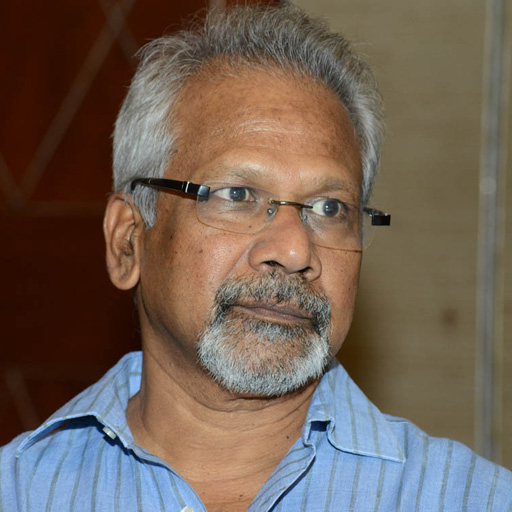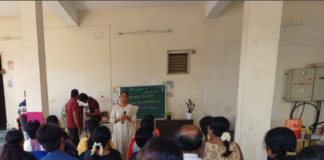With the growing importance of trade and industry in a liberalised system like ours, the importance of Chartered Accountants has grown enormously. A qualified Chartered Accountant (CA) has the option of joining the Government Service, an attractive job in the Public Sector or a lucrative assignment in the private sector. The CAs can also join any financial institution or even have their own consultancy. Whether it is a salaried job or private practice/consultancy, CAs receive very high remunerations for their services. A person choosing this career, has, however, to be careful to ensure that he/she is comfortable with the figure work, as aptitude for figures and accounts is a pre-requisite for the job of a CA. Hence, only such candidates as may beat ease with figures should venture into this specialised career.
Eligibility
The institute of Chartered Accountants of India (ICAI), with its headquarters in New Delhi, acts as the nodal agency in regulating the profession of the CAs as well as conducting examinations, granting certificates and exercising disciplinary control over the members. The affairs of ICAI are managed by a Council consisting of 30 members, out of which 24 are elected and six are nominated by the Government of India. The Institute has five Regional offices and over 80 Branches offices all over the country with seven Chapters abroad at places including Abu Dhabi, Bahrain, Dubai, Jeddah, Muscat and Zambia. The Institute was set up in 1949, by an Act of the Parliament and is performing the functions assigned to it since then.
Every graduate above 18 years of age is eligible to register as an articled clerk for the Chartered Accountancy. In addition the candidate should also have passed the Entrance Examination of the Institute. Several categories of candidates are, however, exempted from passing the Entrance Examination. A candidate who has passed the graduation examination with commercial law, accountancy, auditing or mercantile law as one of the subjects and secured at least 50 per cent marks in the graduation examination is exempted from passing the Entrance Examination. Graduates in other subjects securing 55 per cent marks in aggregate are also exempted. For calculating 50 or 55 per cent marks the papers which are only qualifying in nature are not considered. Even those candidates who are to take their academic examination subsequently, are eligible to take the Entrance Examination, provided that they have to submit satisfactory proof of their having passed the graduation examination within 9 months of their provisional registration with the ICAI.
Entrance and Training
For All candidates, other than those exempted, it is essential to take the Entrance Examination and qualify it before getting registered with the Institute. The candidates planning to take the Entrance Examination, must possess the eligibility qualifications mentioned above. It may, however, be noted that no candidate is allowed to appear for more than thrice in the Entrance Examination. In other words, if a candidate fails thrice at the Entrance Examination, he/she is rendered ineligible to take this examination thereafter.
The candidates have to take and qualify the following four papers to be successful at the Entrance Examination:
Paper-I Elements of Accounting
Paper-II English
Paper-III Elementary Business Mathematics
Paper-IV Genreral Commercial Knowledge and Economics.
To be successful at this examination the candidates are required to pas all the four papers individually by obtaining at least 40 per cent marks and jointly securing at least 50 per cent marks in all the four papers taken together.
The Institute also registers those candidates who, after their 10,+2 examination in Arts, Commerce or Science, join the 12-month Foundational Course. 12 months after registering for the Foundational Course, the students take the Entrance/Foundational Course examination in four subjects. During the Foundational Course, the students are imparted coaching and training enabling them to pass the examination. The advertisement for the Entrance/Foundational Examination appears in almost all major national newspapers from time to time and usually, this examination is conducted twice a year.
The Training of CAs is a good blend of practical training in the form of on the job training, on the one hand, and theoretical input in the form of regular supply of study material by the Institute, on the other. During the practical training, every registered student has to undergo postal tuition imparted by the Board of Studies of the Institute. For this every candidate has to pay the Registration and Tuition fee, in addition to the nominal Association fee.
For practical training, the candidate may either work as an articled clerk for a period of three years or work as audit clerk for four years. This training is done as per the deed of articles of apprenticeship which is executed as a training agreement. The entire period of practical training can either be served under a practising member of the Institute, or can be served partly under a practising member and partly in an approved industry. Any trainee who gets attached to a Chartered Accountant for a period of 3 years is called articled clerk and other who wish to take up a job in a firm or approved industry for a period of 4 years, are known as audit clerks. All the articled clerks get a fixed rate of stipend from the CA with whom they are attached, as per the rates fixed by the Institute from time to time. Audit clerks, on the other hand, earn their wages and minimum wages of the audit clerks are also notified by the Institute from time to time. Hence, during this period of 3 to 4 years of practical and theoretical training, the Candidates/trainees also get a chance to earn their livelihood while acquiring knowledge and preparing themselves for the Intermediate and Final Examination.
The service conditions of the trainees undergoing practical training are governed by various instructions issued by the ICAI. Audit and articled clerks are entitled to leave at the rate of one seventh of the period of actual service. While preparing for the Intermediate and final examinations of the Institute, a trainee may be granted two months’ leave, subject to the leave due. Such trainees are required to work up to a maximum of 35 hours per week. With prior permission from the ICAI the trainees may also pursue other courses of study, provided that the attendance for such courses is outside the normal working hours and the classes are not held between 11.00 A.M. to 4.30 P.M.
Examinations
After joining the practical training as articled clerk or audit clerk, the trainees become eligible for taking the intermediate and Final examinations of the Institute after the prescribed period. A maximum of ten-year period is allowed to all the candidates after commencement of their training to qualify the Intermediate examination. For appearing in the Intermediate examination, the trainees must have completed at least 9 months’ practical training as an articled or audit clerk and should have completed the postal tuition scheme initiated by the Board of Studies of the Institute.
The Intermediate Examination consists of seven papers which includes. Accounting, Income Tax Law, Auditing, Cost Accounting, Mercantile and Company Law, Business Mathematics and Statistics, Organisation and Management and Economics. The candidates have the option of answering all the papers, either in Hindi or English, but paper-wise option is not allowed to select the medium to answer the questions.
A candidate who wishes to pass the Intermediate Examination, will have to first qualify at least 9 test papers during the period of 9-month training. These tests are conducted by the Institute on Sundays and the Candidates are required to obtain 40 to 45 per cent marks in these tests. On successful completion of tuition, including the tests, a certificate is granted to the students which makes him/her eligible to appear in the Intermediate Examination.
After successfully qualifying the Inter Examination, the trainees become eligible for the Final Examination. Final examination contains eight papers including Advanced Accounting, Management Accounting, Auditing, Company Law, Direct Tax Laws and a set of 3 papers out of three combinations mainly containing Management papers. The trainee candidates can take Final examination within the last six months of their practical training, provided that there is a time interval of one Final Examination between passing of Inter examination and the first appearance in the Final examination. However, for a trainee candidate who appears in the Final examination of the Institute after completion of training period as clerk, no such time interval is a pre-requisite.
The above examinations are usually conducted twice every year in the months of May and November. In each examination, a candidate is required to obtain a minimum of 40 per cent marks in every paper and a minimum of 50 per cent in the aggregate at one sitting at the entire examination. Candidate securing more than 70 per cent marks is considered to have passed the said examination with distinction. Any one who passes all the examinations is registered as an Associate Member of ICAI.
Prospects
Career prospects for the CAs are very bright. Chartered Accountancy has emerged as a specialised professional field to which no one can get without becoming an associate member of the Institute. All the companies registered under the Companies Act, Public Sector Undertakings, Institutions and specified Business Houses are required to get their accounts audited by the practising Chartered Accounts, who receive handsome remuneration for this. In addition, all such organisations require the full time services of CAs as Finance Managers, Financial Controllers, Financial Advisors or Directors (Finance), etc for keeping a close watch over the finances in the day to day management. Opinion of a Chartered Accountant, whether working on full time basis or acting as a part time consultant, is valued immensely in every business organisation. CA is considered to be a professional of exceptional and high order and cannot be substituted by any other professional.
With the growing number of export houses, advent of numerous multinational corporations, expansion of trade and industry, rapid growth of capital and money markets and expansion of business, the need for CAs is increasing. Competent professionals, with pleasant personality, practical approach and natural instinct to deal with figures, are expected to do extremely well in this profession. Finance is one of the most important functional areas in any business organisation and a competent CA heading this division is expected to be the king-pin of the entire organisation. The openings in the field of private practice and consultancy are even more lucrative and satisfying, as one does not have to work under any boss and the amount of business entirely depends upon the quantum of hard work and effort put in by CAs. The career, thus, can truly be termed as challenging and rewarding in its own right.



